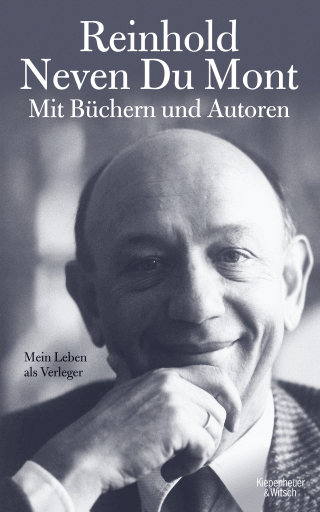Reinhold Neven Du Mont’s publishing memoirs – full of exciting, dramatic and sometimes sad and funny stories
For 32 years, from 1969 to 2001, Reinhold Neven Du Mont successfully ran the Cologne-based publisher Kiepenheuer & Witsch, turning it into the house we know today.
After the sudden death of its founder, J. C. Witsch, Neven Du Mont provided the necessary continuity while also clearly recognizing the signs of the times in the sociopolitical upheavals after 1968. With Günter Wallraff, in the 1970s, Kiepenheuer & Witsch became one of the top addresses for works of social criticism as well as one of the leading publishers – which it remains to this day – of brilliant German-language and international literature, from Heinrich Böll and Gabriel García Márquez to Julian Barnes and Don DeLillo.
The succession of German-language authors who turned up at Kiepenheuer & Witsch during this period is long, ranging from Uwe Timm and Peter Härtling to Katja Lange-Müller and Christian Kracht. Many of its political nonfiction books, such as Günter Wallraff’s “Ganz unten,” made history. But these were also the years of authors such as John Le Carré, Nick Hornby, Alice Schwarzer, Oriana Fallaci and Franca Magnani, and of the birth of pop in book form.
Reinhold Neven Du Mont writes not only about the authors and their books, but also remembers many behind-the-scenes stories, giving an inside account of the publishing house as a simmering workshop with a committed staff, whose dedication also contributed to its tremendous success during this period.

